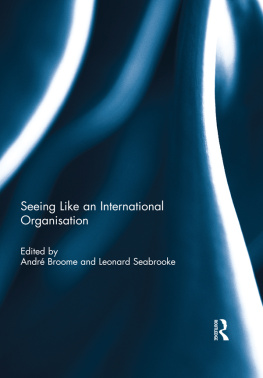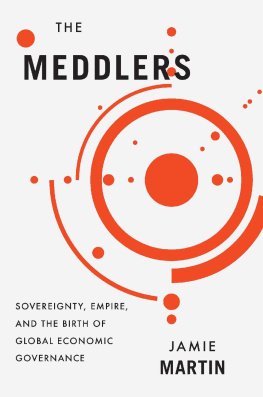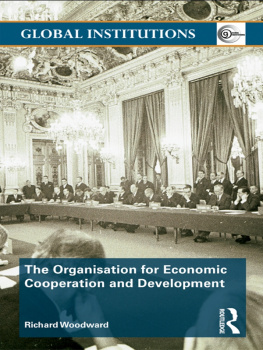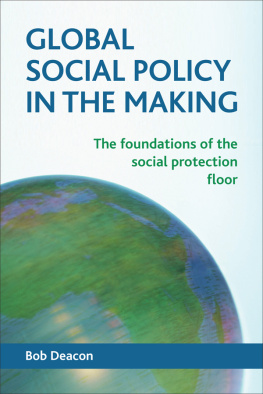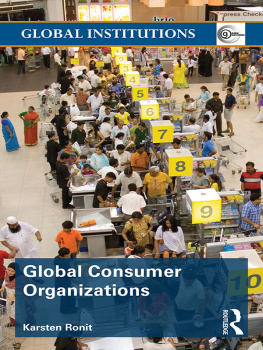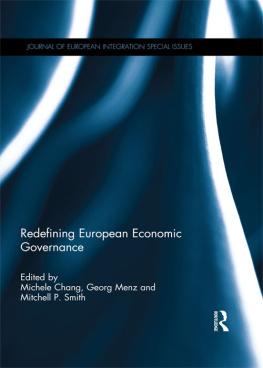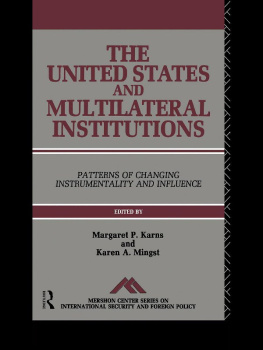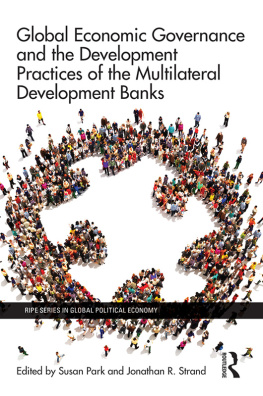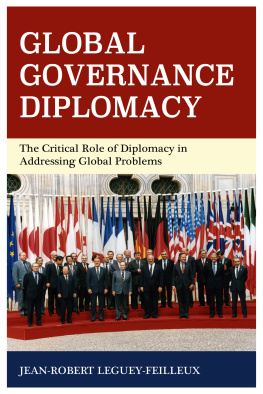Seeing Like an International Organisation
This book contributes to the study of International Organisations (IOs) by providing a sharp focus on how IOs analytic institutions interact with states over key policy issues. Analytic institutions include the areas, departments, committees, adjudicatory bodies, and others housed by or linked to IOs that develop the cognitive framework for identifying, understanding, and solving policy problems. They make the state legible to IOs and are the key means for how IOs see their member states, shaping how international political and economic problems are understood. This book investigates why seeing like an IO matters through cases on leading organisations for global economic governance, including the International Monetary Fund, the World Bank, the Bank for International Settlements, the Organisation for Economic Co-Operation and Development, and the World Trade Organization. The contributors demonstrate the benefits of studying IOs from the inside-out to enrich our understanding of why issues in the international political economy are governed the way they are.
This book was previously published as a special issue of New Political Economy.
Andr Broome is Associate Professor of International Political Economy at the University of Warwick, UK.
Leonard Seabrooke is Professor of International Political Economy at the Copenhagen Business School and University of Warwick, UK. Broome and Seabrooke are both researchers on the Global Reordering: Evolution through European Networks project from the European Commission Seventh Framework Programme.
First published 2014
by Routledge
2 Park Square, Milton Park, Abingdon, Oxon, OX14 4RN, UK
and by Routledge
711 Third Avenue, New York, NY 10017, USA
Routledge is an imprint of the Taylor & Francis Group, an informa business
2014 Taylor & Francis
All rights reserved. No part of this book may be reprinted or reproduced or utilised in any form or by any electronic, mechanical, or other means, now known or hereafter invented, including photocopying and recording, or in any information storage or retrieval system, without permission in writing from the publishers.
Trademark notice: Product or corporate names may be trademarks or registered trademarks, and are used only for identification and explanation without intent to infringe.
British Library Cataloguing in Publication Data
A catalogue record for this book is available from the British Library
ISBN 13: 978-1-138-78721-6
Typeset in Times New Roman
by Taylor & Francis Books
Publishers Note
The publisher accepts responsibility for any inconsistencies that may have arisen during the conversion of this book from journal articles to book chapters, namely the possible inclusion of journal terminology.
Disclaimer
Every effort has been made to contact copyright holders for their permission to reprint material in this book. The publishers would be grateful to hear from any copyright holder who is not here acknowledged and will undertake to rectify any errors or omissions in future editions of this book.
Contents
Andr Broome & Leonard Seabrooke
J.C. Sharman
Antje Vetterlein
Manuela Moschella
Jens L. Mortensen
Kevin Ozgercin
The chapters in this book were originally published in New Political Economy , volume 17, issue 1 (February 2012). When citing this material, please use the original page numbering for each article, as follows:
Chapter 1
Seeing like an International Organisation
Andr Broome & Leonard Seabrooke
New Political Economy , volume 17, issue 1 (February 2012) pp. 116
Chapter 2
Seeing Like the OECD on Tax
J.C. Sharman
New Political Economy , volume 17, issue 1 (February 2012) pp. 1734
Chapter 3
Seeing Like the World Bank on Poverty
Antje Vetterlein
New Political Economy , volume 17, issue 1 (February 2012) pp. 3558
Chapter 4
Seeing Like the IMF on Capital Account Liberalisation
Manuela Moschella
New Political Economy , volume 17, issue 1 (February 2012) pp. 5976
Chapter 5
Seeing Like the WTO: Numbers, Frames and Trade Law
Jens L. Mortensen
New Political Economy , volume 17, issue 1 (February 2012) pp. 7796
Chapter 6
Seeing like the BIS on Capital Rules: Institutionalising Self-regulation in Global Finance
Kevin Ozgercin
New Political Economy , volume 17, issue 1 (February 2012) pp. 97116
Please direct any queries you may have about the citations to
ANDR BROOME & LEONARD SEABROOKE
International organisations (IOs) often serve as the engine room of ideas for structural reforms at the national level, but how do IOs construct cognitive authority over the forms, processes and prescriptions for institutional change in their member states? Exploring the analytic institutions created by IOs provides insights into how they make their member states legible and how greater legibility enables them to construct cognitive authority in specific policy areas, which, in turn, enhances their capacity to influence changes in national frameworks for economic and social governance. Studying the indirect influence that IOs can exert over the design of national policies has, until recently, often been neglected in accounts of the contemporary roles that IOs play and the evolution of global economic governance. By seeing like an IO, we can increase our understanding of the cognitive and organisational environment that guides an IOs actions and informs its policy advice to states, which enables a more comprehensive picture of how the everyday business of global governance works in practice. Instead of black boxing IOs, the contributors to this special issue demonstrate how studying IOs from the inside out expands our understanding both of the policy dialogue between IOs and their member states and how IOs and states learn from each other over time.
How do international organisations (IOs) construct cognitive authority over the forms, processes and prescriptions for institutional change in their member states? This special issue examines this complex question by concentrating on the analytic institutions that shape how IOs see the social environments in which they seek to effect economic reforms and embed particular intellectual frameworks as commonsense solutions to a states policy problems. The analytic processes through which IOs see different societies and attempt to make them legible through common systems of measurement and benchmarking standards constitute an indirect exercise of political power over distinct social, economic and political systems, which rests upon the cognitive authority to measure, analyse and prescribe institutional changes for states that is constructed by and housed within IOs themselves. While the processes through which IOs attempt to construct cognitive authority usually operate in the background and tend to attract less critical attention compared with more high-profile activities such as the lending programmes of the International Monetary Fund (IMF) and the World Bank or the World Trade Organisations (WTO) Doha Round negotiations the lens through which IOs see their member states nonetheless has important consequences for the content of their policy advice as well as the range and type of alternative reform prescriptions they provide. In particular, how analytic institutions within different IOs conceive the appropriate role of the state in the economy and how they incorporate local knowledge (or not) can act as an organisation-wide constraint that drives an IO in a particular direction and provides cognitive impulses that screen out alternative models of policy reform, or alternative explanations for policy mistakes, by erecting intellectual boundaries around the scope of policy imagination available to IOs in their everyday activities.

